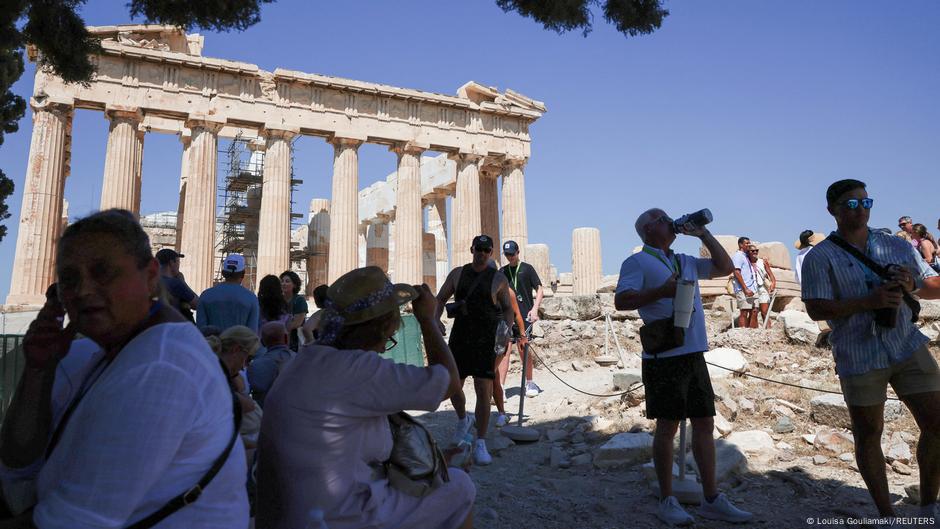Acropolis Closed Due to Extreme Heat
The iconic Acropolis in Athens, one of the most visited ancient temples in the world, has been temporarily closed to the public due to a severe heat wave. Authorities made the decision to shut down the site for part of Tuesday afternoon to ensure the safety of both workers and tourists.
Temperatures in Athens were expected to reach up to 38 degrees Celsius (100 degrees Fahrenheit) during the four-day heat wave. The Greek Culture Ministry announced that the Acropolis would remain closed until 5:00 pm (1400 GMT) as a precautionary measure. This move was taken to protect workers and visitors from the extreme conditions, which can pose serious health risks, especially for those spending long hours outdoors.
In addition to the closure of the Acropolis, the Labor Ministry issued instructions for outdoor workers across the country to halt their activities between midday and 5:00 pm. This directive applies to all regions where temperatures are expected to peak at 43 degrees Celsius. Such measures highlight the growing concern over the impact of rising temperatures on public health and labor safety.
Impact of the Heat Wave on Greece
Greece has been experiencing an intense heat wave that is affecting the entire country. The 2,500-year-old Acropolis, a symbol of ancient Greek civilization, attracts tens of thousands of visitors daily. In 2023 alone, the site welcomed over 4.5 million visitors. However, the structure is located on a rocky hill that offers minimal shade, making it particularly vulnerable to high temperatures.
This is not the first time that the Acropolis has had to be closed due to extreme heat. In recent years, similar shutdowns have occurred during periods of intense summer weather. These closures underscore the challenges faced by historical sites in adapting to changing climate conditions.
The current heat wave is expected to last through Wednesday, with temperatures gradually decreasing to more manageable levels by Thursday. While Greece typically experiences hot summers, experts suggest that climate change may be exacerbating the frequency and intensity of such events.
Climate Change and European Heat Waves
The heat wave currently affecting Greece is part of a broader pattern of extreme weather across Europe. In recent days, several countries have reported record-breaking temperatures, leading to widespread concerns about the long-term effects of global warming. Scientists emphasize that rising greenhouse gas emissions are contributing to more frequent and severe heat waves, which can have devastating impacts on ecosystems, agriculture, and human health.
As the world continues to grapple with the consequences of climate change, historical sites like the Acropolis serve as reminders of the delicate balance between preserving cultural heritage and adapting to environmental challenges. The temporary closure of the Acropolis highlights the need for proactive measures to protect both people and historical landmarks from the increasing threats posed by extreme weather events.
With the ongoing heat wave, authorities are urging residents and visitors to take necessary precautions, such as staying hydrated, avoiding prolonged exposure to the sun, and following local guidelines. As temperatures begin to ease, the Acropolis is expected to reopen, allowing visitors to once again experience the grandeur of this ancient wonder.







